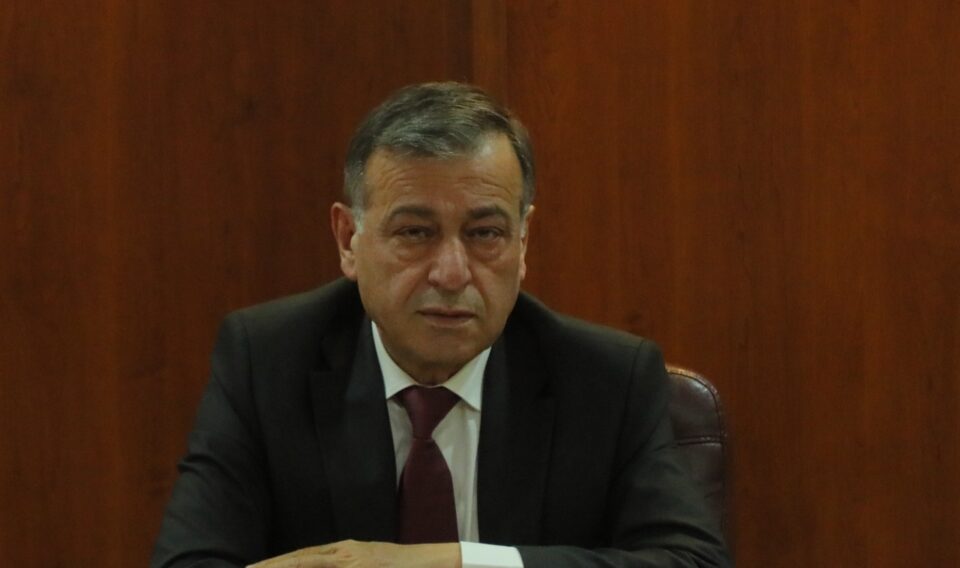By Farhad Mohamad
In 2002, just months before the Ba’ath regime fall in April 2003, the Mustafa Barzani Center for Peace at the American University in Washington hosted a pivotal conference titled “Kurdistan is the Key to Iraq’s Stability.” The event brought together Nechirvan Barzani, then Prime Minister of the Kurdistan Region, alongside representatives from all major Iraqi opposition groups, as well as numerous international diplomats and scholars. Over the course of two days, participants engaged in in-depth discussions on the prospects and challenges of rebuilding a post-Saddam Iraq, laying the groundwork for a vision of a more stable and inclusive future.
Eventually, the conference participants concluded that Iraq’s centralized governance model had to be dismantled and replaced with a decentralized system. During the same event, Professor David L. Phillips presented a significant study titled “Power shearing in Iraq,” which later informed key provisions of the 2005 Iraqi Constitution. This constitution—endorsed by over 80% of Iraqi voters—defined the post-Ba’ath state as a “federal, democratic, parliamentary, and pluralistic republic.” Notably, the preamble asserts that “The adherence to this Constitution preserves for Iraq its free union of people, of land, and of sovereignty.”
Regrettably, however, deep-rooted sectarianism hindered the full implementation of the constitutional framework. As a result, Iraq failed to develop into a genuinely federal state governed by a clear separation of powers.
The core issue confronting the Iraqi state since 2003 has been the absence of a true spirit of statesmanship. The political figures who assumed power in the post-Saddam era largely operated through a sectarian mindset, rather than adopting a leadership approach rooted in vision progress, and the broader interests of the population. Consequently, Iraq’s political system gradually transitioned—not into a balanced, decentralized democracy—but toward a Shiite theocratic structure, which all Iraqis are now bearing the consequences.
The Kurdistan Region’s primary concern is to preserve the essence of the Iraqi Constitution, which affirms Iraq’s identity as a federal state. Notably, Article 117 of the Constitution states: “This Constitution, upon coming into force, shall recognize the region of Kurdistan, along with its existing authorities, as a federal region.
This article transformed the Kurdistan Region—established as a de-facto entity by the Kurdistan Parliament in 1992—into de-jure recognized federal region under the 2005 Constitution.
Countries that have opened consulates or representative offices in the Kurdistan Region, along with international companies and investors operating there, based on the constitutional legitimacy granted by this framework. Despite this clear legal recognition, the Iraqi federal government has repeatedly failed to treat the Kurdistan Region in accordance with its constitutional status, frequently violating its rights under various pretexts.
The Prime Minister of the Kurdistan Region has repeatedly affirmed, both within Iraq and on the international stage, that he will not concede any of the constitutional rights granted to the Kurdistan Region. Furthermore, he has made it clear that we will not support or be complicit in Iraq’s drift from a centralized governance model toward a theocratic system.
The Kurdistan Regional Government’s firm and principled stance in advocating for the implementation of Iraq’s constitution—particularly its emphasis on establishing a truly federal system as outlined in the 2005 Constitution—merits strong backing from the international community. This is especially relevant for those countries that maintain consulates and representative offices in the region.
Although the Kurdistan Region is not an independent state, it has made significant contributions to global peace and security. The Peshmerga forces, acting on behalf of the international community, played a key role in confronting terrorism—dismantling the myth of ISIS and ultimately defeating its forces.

